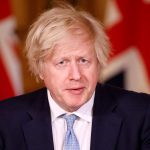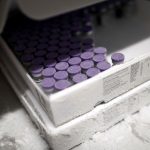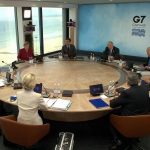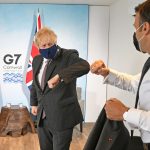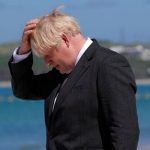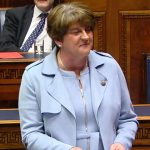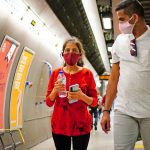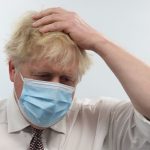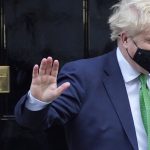There are a “whole series of complexities to resolve” before travel between the UK and US can resume, the transport secretary has said.
Grant Shapps told MPs that talks are under way and “progress is being made” on restarting transatlantic travel, which has been heavily restricted since March 2020 due to COVID-19.
Live COVID updates from the UK and around the world
Please use Chrome browser for a more accessible video player
But he played down the prospect of a swift resolution.
Elaborating on the “complexities”, Mr Shapps told the Commons: “For example, the US does not recognise AstraZeneca, currently because AstraZeneca hasn’t applied for the licence.
“On the other side we don’t have any particular system to recognise vaccine status from the United States because they don’t have a digitised system as we do with our NHS – they have 50 separate systems.
“There are complexities.”
The transport secretary also said it would “require time” to sort out the “complicated” policy of allowing travellers who have had two jabs to avoid quarantine.
Ministers said last week that fully vaccinated people in England would be able to travel to an amber list country without having to quarantine on their return “later this summer”.
Spain’s Balearic islands and Madeira, an autonomous region of Portugal, are on the UK government green list.
The amber list includes the United States, as well as France, Germany, Portugal, Italy and Greece.
Responding to an urgent question from Labour, Mr Shapps said: “This is a complicated policy that requires time to work through.
“First, the Joint Committee on Vaccines and Immunisations has yet to opine on whether children should be part of the vaccination programme – they’re not at present and we must resolve how children would therefore be treated under a programme which enables people to travel.
“Next there’s the question of what to do for people who cannot be vaccinated for medical reasons or perhaps because they’re on one of the vaccine trials.
“That accounts for about half a million people and we need to work out what to do there.
“There’s also the question of how to recognise vaccine status at ports and airports – easier for people who have been vaccinated in the UK, the main NHS app can already display your vaccine status, but less easy to prove from someone coming from overseas, particularly if they have paper-based systems.
“As a result of all of this we will announce to the House when we’re ready to make these decisions in order to bring this system into place, phased most likely for UK residents first.”
Please use Chrome browser for a more accessible video player
Labour’s shadow transport secretary, Jim McMahon, said the party had been calling on the government to “show international leadership” but “so far they have failed to step up”.
“So can I ask him why the government won’t bring forward concrete plans for an international vaccine passport which will be accepted by key destination countries?”
The transport secretary said in response: “He calls for a passport which could be used for people who are double vaccinated and yet at the same time his policy is actually to put every single country in the red list.”
Labour has in the past called for the amber list to be scrapped, with only a green and red list.
At the start of the urgent question, Commons Speaker Lindsay Hoyle criticised the government for announcing changes to travel policy to the media before updating MPs.
Please use Chrome browser for a more accessible video player
“If ministers choose to make important announcements outside this chamber first they must not be surprised that I will grant urgent questions on those matters,” Sir Lindsay said.
He added: “I will continue to make sure this House gets an opportunity to scrutinise the government but it’d be better for all concerned if the government simply followed its own ministerial code and made important announcements to this House where members are elected to represent their constituents.”
Mr Shapps told the chamber that changes to the travel measures can “escape” via the devolved administrations in Scotland, Wales and Northern Ireland once decisions have been taken.
He added: “I do apologise to the House for not always being able to get here first.”



